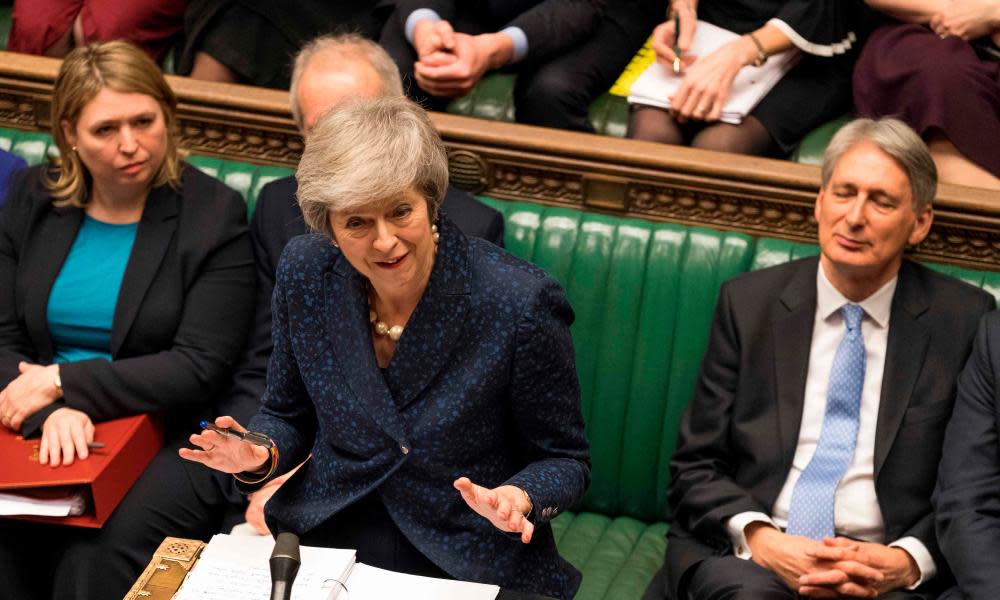Any boost to sterling if Theresa May survives is not likely to last

News that Theresa May was facing a confidence vote from her own MPs broke just before trading began in the City. But those expecting a market meltdown were swiftly proved wrong. Shares had one of their better recent days and the pound rose on the currency markets. If, as the old cliche has it, financial markets react badly to uncertainty it was hard to tell as much.
The upbeat mood in the equity markets was easy to understand. Share prices around the world were higher on hopes of peace breaking out in the trade war between the US and China, and London surfed the same wave as all the other bourses.
Sterling’s solid performance is a bit harder to explain, but was based on the feeling that May would survive. That sentiment grew throughout the day as first cabinet minsters and then backbenchers voiced public support for the PM, who then went on to put in one of her better performances at prime minister’s questions.
But the rise of more than 1% in the pound against the US dollar needs to be put into perspective. The UK currency hit a 20-month low against the dollar earlier this week after the decision to scrap the House of Commons vote on the EU withdrawal agreement and would head south rapidly if – despite all their protestations of loyalty – Tory MPs vote to get rid of May.
In those circumstances there would certainly be plenty of destabilising uncertainty: the government would be rudderless, the prime minister would be a lame duck, the clock would be ticking down towards EU departure day on 29 March, and the odds would be on May’s successor being in favour of a harder Brexit. City estimates of an immediate 3% fall in sterling against the dollar look perfectly feasible.
The pound will get another boost if the prime minister comfortably sees off the challenge – but any upward move is likely to be small and short-lived. In part, that’s because a victory for May is already in the price for sterling. But, more importantly, it’s because nothing will really have changed from earlier in the week. May will still have the problem of getting a deal that the EU is unwilling to renegotiate through a deeply hostile Commons. The parliamentary arithmetic has not changed, which means May’s deal is likely to be rejected. And that leaves the pound vulnerable.
Chinese concessions give Trump a chance to claim victory
Ending the trade war between the US and China always required one or other of the world’s biggest economies to blink first. Now one has. Beijing plans to give more access to its domestic market to US companies and cut its tariff on US car imports from 40% to 15%.
While significant, these concessions do not mean peace has broken out. Previously, China has been quick to promise enhanced market access and slow to deliver on its pledges. What’s more, the cut in car tariffs only takes them back to where they were before Beijing raised them in retaliation to higher US duties on Chinese imports.
But China has good reason to want to de-escalate the trade tension. For a start, Donald Trump has a case when he says Beijing has been running a protectionist policy for years: using membership of the World Trade Organization to flood the global economy with cheap goods while limiting access to its own market for foreign firms.
As a result, China’s economic growth is more heavily dependent on exports than is America’s. In a prolonged struggle between the two economic superpowers, China has more to lose.
President Xi Jinping is also canny enough to know that Trump also wants a deal, not least because fears of a full-blown trade war are hitting shares on Wall Street. China’s leader is assuming that Trump wants to claim victory for his negotiating stance and move on. These quite modest proposals provide the White House with the opportunity to do so.

 Yahoo News
Yahoo News 
